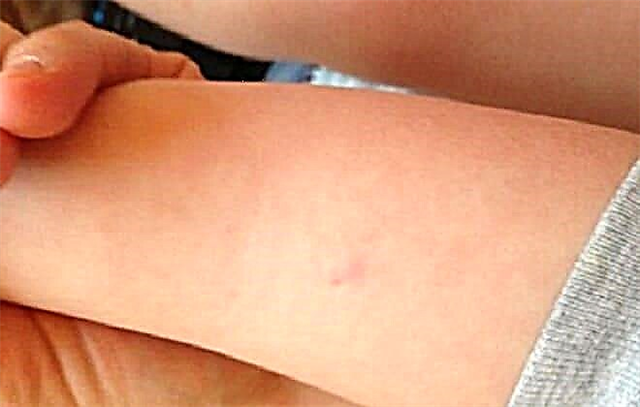Vegetable fats should be included in the children's diet from an early age. They contain valuable amino acids, antioxidants and other beneficial substances, and also help to revitalize the digestive system. The most common vegetable fat in Russia is sunflower oil. A valuable product should be introduced into the baby's diet gradually, then the child will quickly get used to it.

Vegetable fats stimulate the intensive development of the child's body
The benefits of vegetable oils for a child
Natural vegetable fats are very beneficial for children of all ages because they:
- Have a beneficial effect on digestion;
- Do not cause allergic reactions;
- Contains essential amino acids that have a beneficial effect on brain function, improve memory and concentration;
- Unlike animal fats, they are well absorbed in any quantity.
In Russia, the most popular vegetable fat for children on gv is sunflower oil. You can also find butter and margarine based on vegetable fats on sale, but they contain harmful chemicals, therefore, they are definitely not suitable for baby food.
What vegetable oil can take up to a year
Parents often ask what kind of vegetable oil to give their babies to complementary foods. Children of the first year of life can be given sunflower or olive oil. However, not all babies are happy to eat this product in its pure form. It is best to add oil to complementary foods, such as foods such as:
- Soup;
- Porridge;
- Vegetable puree;
- Steam cutlets.
You can also put some butter on a piece of brown bread and give it to your child as a snack. Children of the second year of life, who already chew raw vegetables well on their own, can season salads from cabbage, carrots, cucumbers and tomatoes with vegetable fats.
It is strictly forbidden to purchase a product for feeding newborns from private traders. As a rule, such oil does not have quality certificates, so there is a high risk of poisoning. It is possible to give rapeseed, mustard, and flaxseed oil to children only after prior consultation with a doctor. These products are quite allergenic and often cause individual intolerance in children.
At what age to enter into complementary foods
Modern pediatricians do not recommend using this product earlier than six months because:
- Until this age, the child receives the necessary amount of vegetable fats with milk or formula;
- An immature digestive system can react poorly to early introduction of oils;
- Young children have not yet received complementary foods, so feeding them with something from a spoon is very difficult;
- In the diet of babies under 6 years old, there are no dishes filled with vegetable fats.
As a rule, oil is not added to complementary foods in isolation, but with some familiar product.
Breastfeeding
If a child under six months of age feeds exclusively on mother's milk, vegetable fat can be introduced starting at seven months. As a rule, the product is well tolerated by infants, does not cause indigestion and other unpleasant phenomena.
On artificial nutrition
You can acquaint an artificial baby with this valuable product a little earlier, from about four to five months. It is at this time that the child receives his first complementary food: porridge or vegetable puree. You can add a little oil to these dishes.
How to choose the right oil
It is recommended to purchase vegetable oil from large chain stores. Unrefined - has a rather pungent odor and will not please every newborn baby or toddler of six months, however, compared to refined, it retains more nutrients. When choosing, keep in mind the following:
- The label must have a clear inscription in Russian with the name of the trade mark, expiration date and other information;
- If there is a cloudy sediment at the bottom of the bottle, the product is unusable;
- The oil should not be too thin;
- Too dark color indicates that the product was not stored properly.
These simple tips will help you avoid mistakes when making a purchase. We must take oil from a good company.

Before buying a product, be sure to check its expiration date
How to store
Store the product in a cool and dark place, but never in the light. Oil can deteriorate very quickly if exposed to direct sunlight. Do not pour oil into another container from the bottle in which it was originally placed.
Attention! Children of the second year of life are strictly forbidden to give food that has been fried in oil that has been used twice. Such a product is unsuitable for food, because it contains dangerous substances - carcinogens.
Complementary feeding rate up to a year
You can give children vegetable fats without restrictions. They are quickly absorbed by the child's body. However, it is still worth adhering to certain rules:
- In pure form, no more than two teaspoons can be given at a time;
- The complementary feeding rate should increase gradually;
- You should start with half a teaspoon;
- If the child refuses to eat a new product, do not insist.
You can just wait until the baby is hungry and suggest again. Perhaps this time the little fussy will agree and appreciate the new dish.
In what form is given
The product can be introduced both in pure form and as part of various vegetable and cereal dishes, as well as (for older children) salads. In its pure form, the oil is gently given from a teaspoon, and the child sucks it off.
Serving size
For babies, vegetable oil is given in small portions. As with any complementary food, you can start with half or even a quarter teaspoon. After the first time, you need to carefully monitor the child. According to Komarovsky, it is best to try a new product in the morning, so that if a child suddenly has an allergy to vegetable fats, during the day you can see a doctor or help the child at home on their own.
Attention! Not all children love pure oil. Therefore, if the child is capricious and does not want to eat the product from a spoon, you can simply add vegetable fat to the soup or porridge.
How often to give
How many products to give to a child of an early age, not everyone knows. You can include oil in the diet in soups, cereals and vegetable purees daily, without restrictions. You can use fat for dressing first and second courses, as well as greasing black bread or crackers. As for animal fats (butter), they are less digestible, so the recommended frequency of consumption is no more than three times a week.
Possible problems with complementary feeding
The most common problems with complementary feeding can be:
- Individual intolerance to the product;
- Various allergic reactions;
- Vomiting, diarrhea, gastrointestinal upset;
- Bloating, flatulence, intestinal colic.
Such phenomena are extremely rare and mainly in children prone to allergies. Most children eat sunflower oil with pleasure and do not get sick. If, after consuming the oil, the baby is often bothered by intestinal colic, abdominal massage and temporary elimination of the product from the diet will help solve the problem.

Adding oil to children's diets rarely causes problems or upset.
Could you be allergic to oil
Allergy to sunflower oil in a child, as well as to olive oil, is a rather rare phenomenon, but sometimes it does occur. This most often happens when parents buy a cheap product filled with a variety of flavors and flavorings. It is especially common to buy fake olive oil. Then children do not react to the product itself, but to the chemicals that are added to it. As a rule, an allergic reaction to vegetable oil for a baby is of a short-term nature and quickly passes as soon as the parents remove junk food from the baby's diet, do not eat it themselves and do not feed the child.
Signs of allergies
Allergy to olive oil in a child at 4.5-6 months manifests itself in the same way as other types of food allergies. A rash may appear on the body of a newborn, the so-called urticaria: small red pimples that itch a lot. In severe cases, bronchospasm or Quincke's edema may occur. Also, an allergy can manifest itself with the same symptoms as a gastrointestinal disorder: diarrhea, constipation, vomiting, and bloating. For treatment, you can give your baby antihistamines in a dose appropriate for age, as prescribed by a doctor.
In most cases, no treatment is required and the disorder goes away on its own. In young children, the immune system works well, so the body can easily cope with the load.

Poor quality product can cause allergies
If the family has an infant or a newborn child, only high-quality vegetable fats should be bought and introduced into his diet. Then they will help the baby to fully grow and develop according to age, enriching his body with valuable vitamins, minerals, and trace elements. Olive oil is preferable to sunflower oil, but it all depends on the individual choice of each family.



